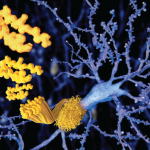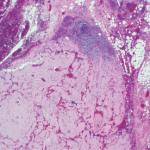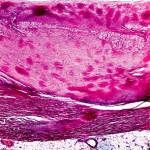The idea worked well in experimental models, and a fully humanized monoclonal anti-SAP antibody, dezamizumab, was produced. Then treatment with miridesap followed by dezamizumab produced unprecedented clearance of amyloid from the tissues and organs of patients in the first human clinical trial. The initial results appeared in the New England Journal of Medicine in 2015, with full results published in Science Translational Medicine in January 2018.1,2
Patients with cardiac amyloidosis were originally excluded from the trial for safety reasons, but subsequently some were treated without any adverse cardiac effects. A Phase 2 trial focused on cardiac amyloidosis is now in progress.
“This really needs to work—if it’s going to be a large-scale drug—in patients with cardiac amyloidosis,” said Dr. Pepys, who is a shareholder in a company that owns the miridesap patents and the patents on his invention of miridesap plus anti-SAP antibody, which are licensed to GlaxoSmithKline. “Because that’s what kills most of the patients with systemic amyloid.”
Thomas R. Collins is a freelance writer living in South Florida.
References
- Richards DB, Cookson LM, Berges AC, et al. Therapeutic clearance of amyloid by antibodies to serum amyloid P component. N Engl J Med. 2015 Sep 17;373(12):1106–1114.
- Richards DB, Cookson LM, Barton SV, et al. Repeat doses of antibody to serum amyloid P component clear amyloid deposits in patients with systemic amyloidosis. Sci Transl Med. 2018 Jan 3;10(422).


